The search for Ma Tinghui: An ordinary soldier, an extraordinary life [Photo story]
Photo collector Zou Dehuai takes us through the search for Ma Tinghui, a former teacher and interpreter for the Allies with the Chinese Expeditionary Force during World War II, who also suffered much during the Cultural Revolution. While the images of him were only found after his death, his legacy lives on among his family and students.
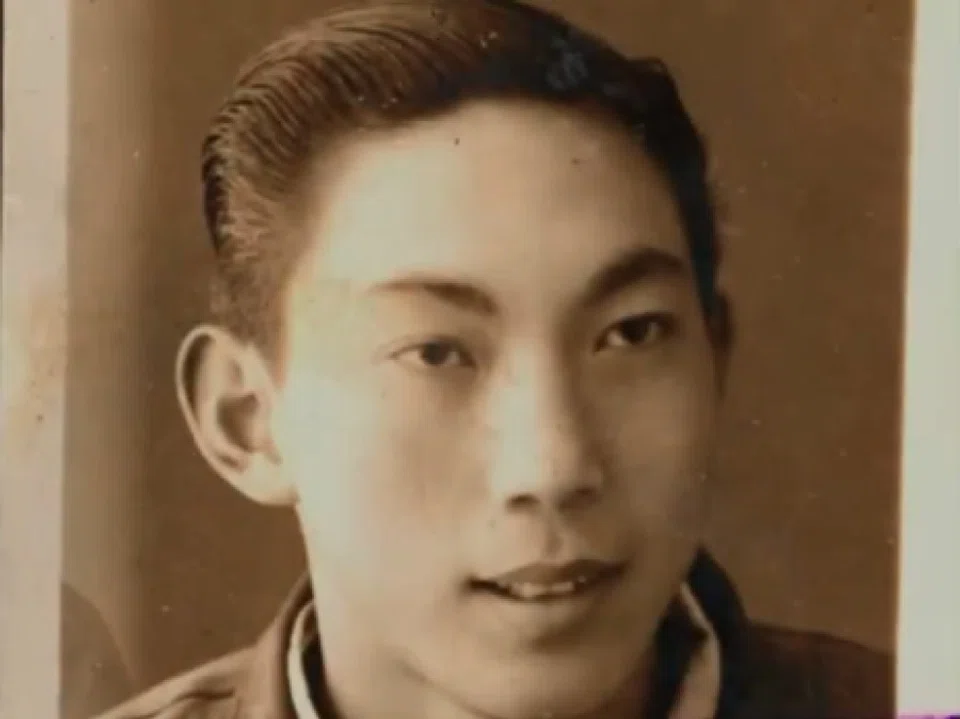
(All photographs copyright of Zou Dehuai.)
The veteran in the centre of the photo below is Li Xiaosheng, a member of the Chinese Expeditionary Force, an expeditionary unit of China's National Revolutionary Army that was dispatched to Burma and India in support of the Allied efforts against the Japanese during World War II.
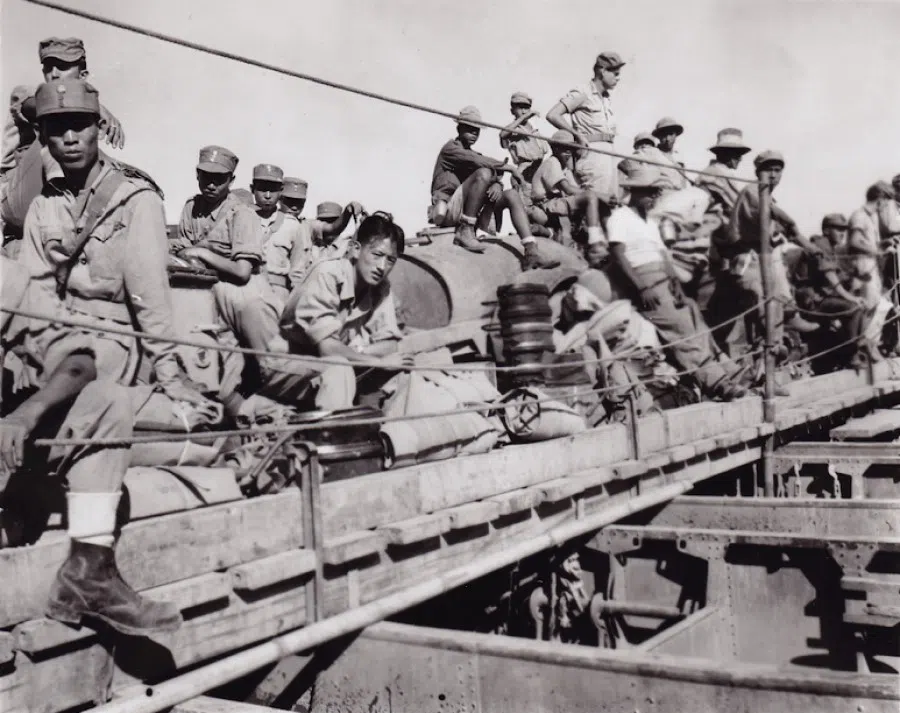
Li never saw this image - it only surfaced more than 70 years later, three years after Li's death, when my friend Yan Huan found it in the US National Archives, among the 23,000 photos of the China-Burma-India theatre during the war.
There are countless such regrets when investigating and researching war veterans; many more soldiers passed from this world with no opportunity to share with their descendants the memories in their hearts.
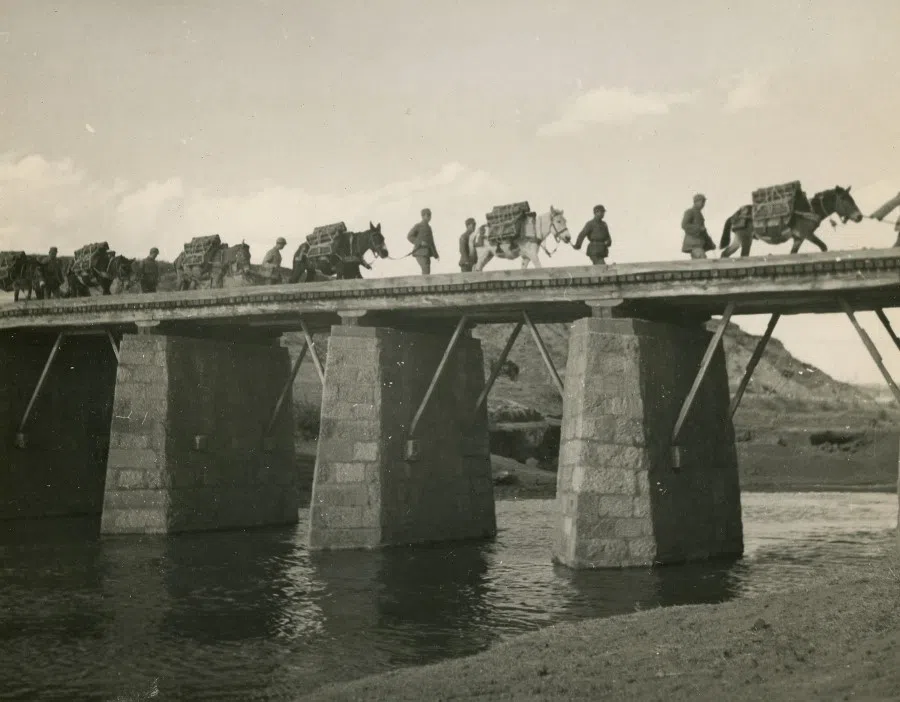
In these circumstances, the efforts of academics dedicated to locating war veterans are particularly valuable. They cross oceans and delve into piles of old documents, searching for those once-passionate and vibrant lives, piecing together those broken yet determined faces of youth.
Silent heroes of the Chinese Expeditionary Force
My friend Yan Huan's maternal grandfather was Pan Yukun, the commander of the 50th Division of the Chinese Expeditionary Force stationed in India. However, Yan Huan never had the chance to talk to his grandfather about the war. Amid such regrets, Yan Huan and his father began searching for information on the veterans of the Chinese Expeditionary Force (CEF) and what they did.
However, after 80 years, it was clearly a difficult task - silence was how these veterans coped with the memories of that turbulent past. Still, through continuous effort, Yan Huan and his father made numerous valuable discoveries. For example, Yan Huan's paternal grandfather, Captain Yan Fubiao, lost his life in the defence of Hengyang in 1944, at the age of 38.
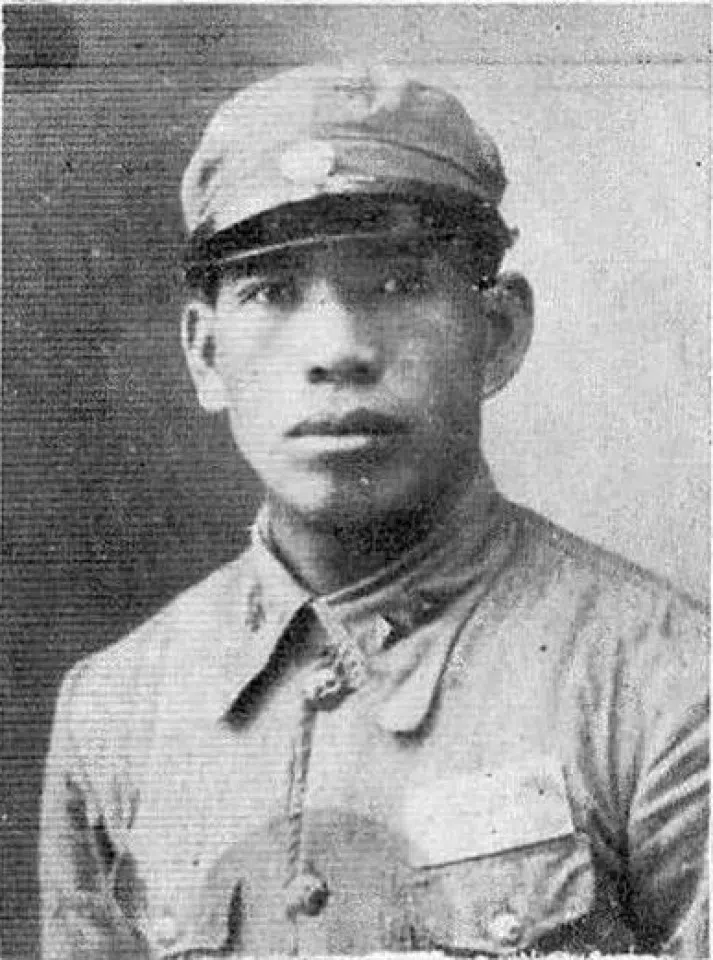
They also found that Captain Zhao Zhenying, a member of the Huangpu Military Academy's 14th Class, witnessed the surrender ceremony of the Japanese Army in Nanjing. He passed away in 2021. Then, there was Li Xiaosheng, an interpreter for the Allies.
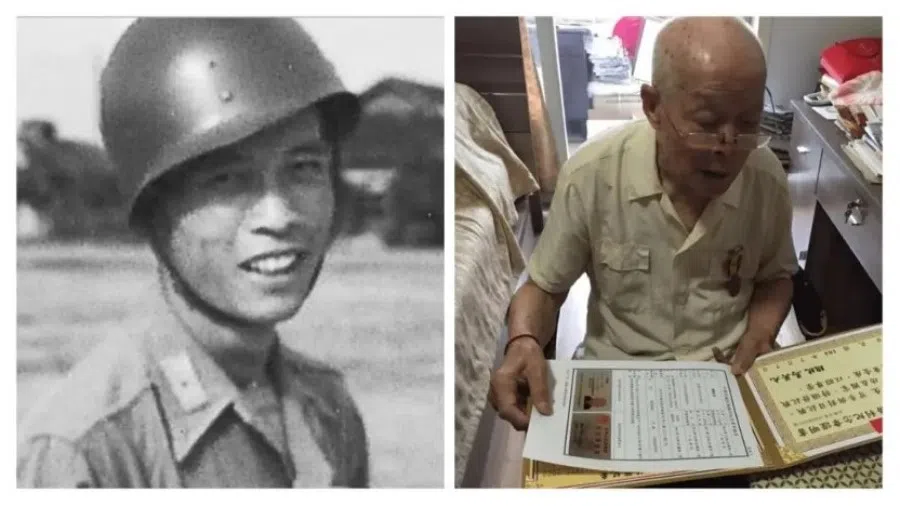
However, while searching for these veterans, there was a lingering question deep in Yan Huan's heart that remained unanswered: was his high school teacher, Ma Tinghui, also a member of the Chinese Expeditionary Force? To find the answer, he searched for 12 long years.
The teacher and interpreter
In Yan Huan's memory, when he first saw Ma Tinghui during the Cultural Revolution, he was in a sorry state. The high school teacher was being held by the arm with his head pressed down, with a sign hanging around his neck: "Blackguard Ma Tinghui."
Despite this, the man from Shandong stood tall on stage - all 1.9 metres (and more) of him. Ma's classmates and family described him as a physics graduate of Wuhan University, which made him a target of internal control; his English was excellent, and "he even knew how to say 'horseshoe' in English".
In 2010, in a phone conversation with the son of veteran Li Xiaosheng, there seemed to be a lead in this longstanding mystery. Yan Huan learned that Li Xiaosheng was also a student who went from Wuhan University on to the battlefield. He asked: "Does your father know an interpreter named Ma Tinghui?"
The reply from Li made him quiver with excitement: "Ma Tinghui? I know him. He was a physics major, from Shandong, a tall chap. He went to Yunnan, and I went to India..."
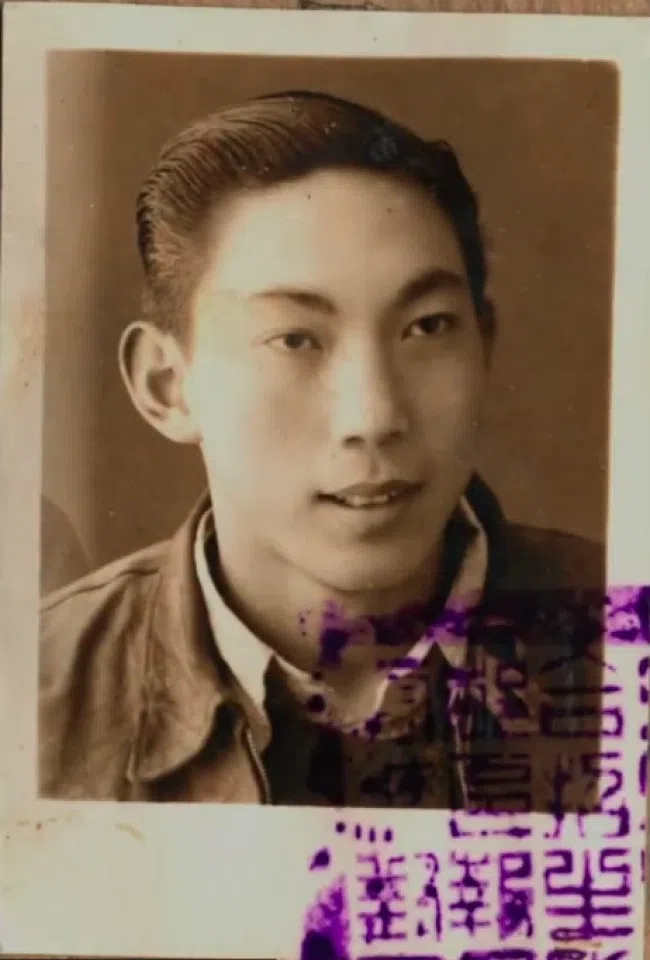
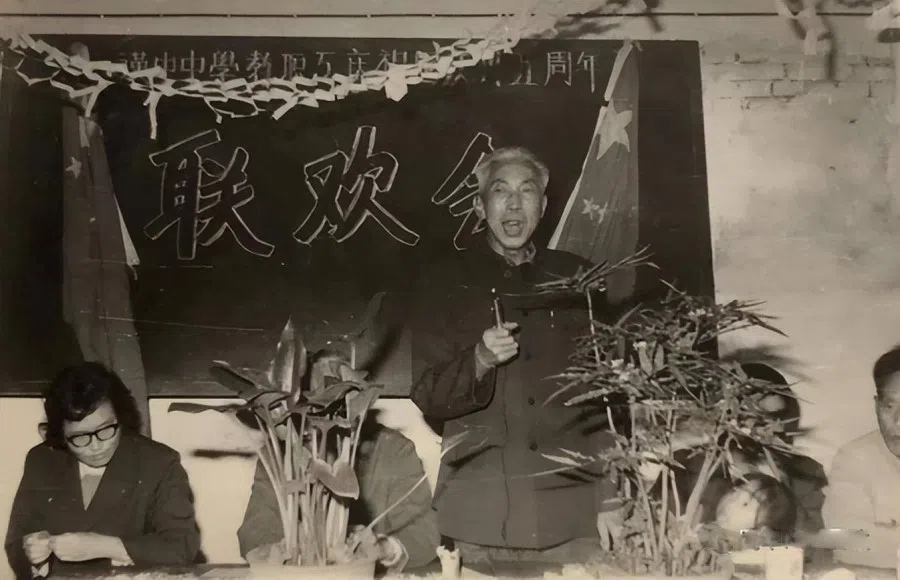
Many leads and guesses over the past 12 years were confirmed at that moment: Ma was indeed a member of the CEF. During the resistance against the Japanese invasion, many university students like Li Xiaosheng and Ma Tinghui had given up their studies and responded to the government's call to become interpreters for the Allies, a job that called for quick learners. They followed the CEF into the Burma-India theatre - many never returned.
By the time Yan Huan excitedly contacted Ma Tinghui's son, Ma Hansheng, he learned that Ma Tinghui had passed away in the early 1990s, and only fragments of his past remained in his son's mind.
"My father rarely talked to me about his experiences as an interpreter. But once, when he was in a good mood, of his own accord he related something he was proud of.
"At the time, he was in charge of purchasing horses for the Allies (used for strategic material transport)... His jeep overturned while evading Japanese air raids, and his right leg was severely injured. It left scars, and since then, no matter how hot the weather was, he always wore long pants and did not show his scars."
Emerging from the shadows
During their search, Yan Huan and his friends found various images and documents, but the results were often disappointing, as the materials were often difficult to corroborate. While David Chang Cheng, an associate professor with the Division of Humanities at the Hong Kong University of Science and Technology, found Ma Tinghui's training assessment form and a citation from the Americans for his services, images of him in uniform and in action were not to be found.
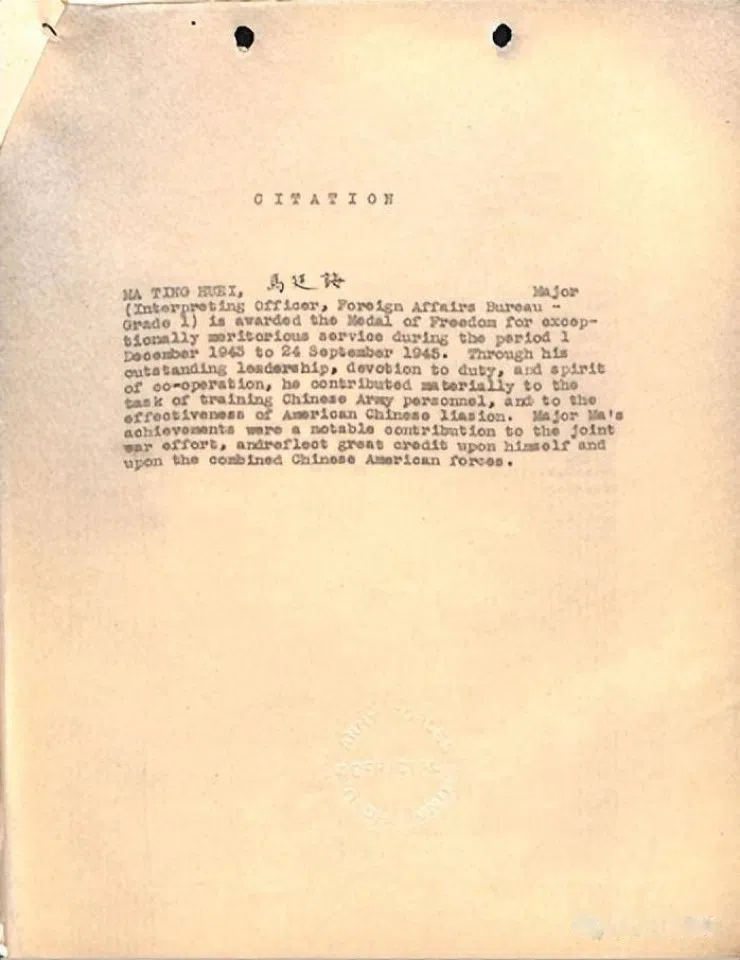
As a collector of old photos, in 2019 I purchased 551 original, previously classified photos of the Burma-India theatre.
Perhaps Ma Tinghui was in these photos? Interpreter for the Allies; military horses; right leg previously severely injured - these were all the information that Yan Huan gave me. I took these few words and joined the search for Ma Tinghui. However, after extensive searching, I found no trace of him.
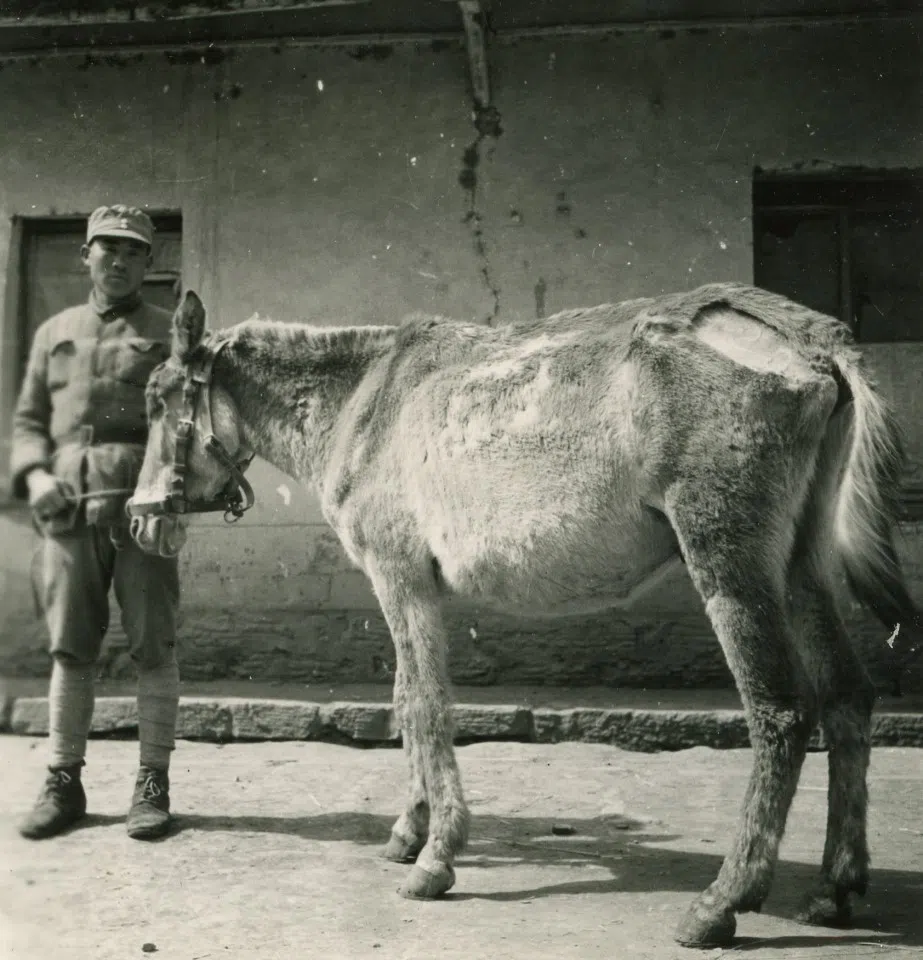
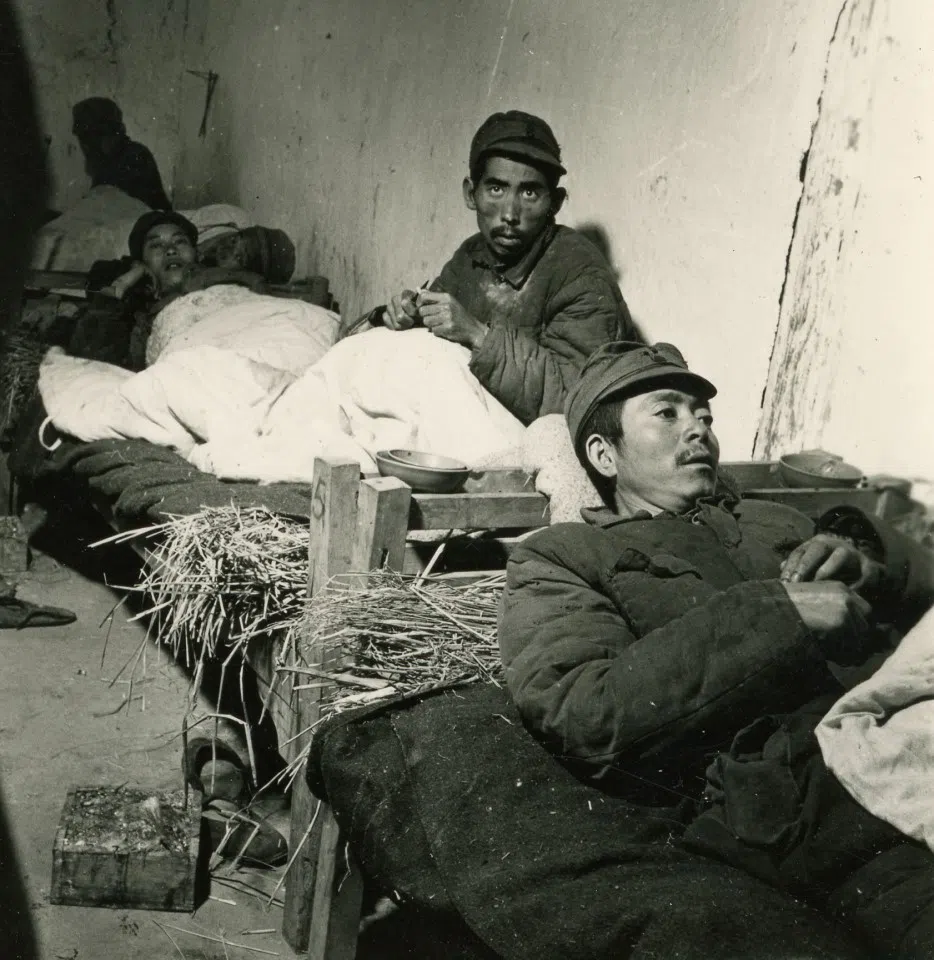
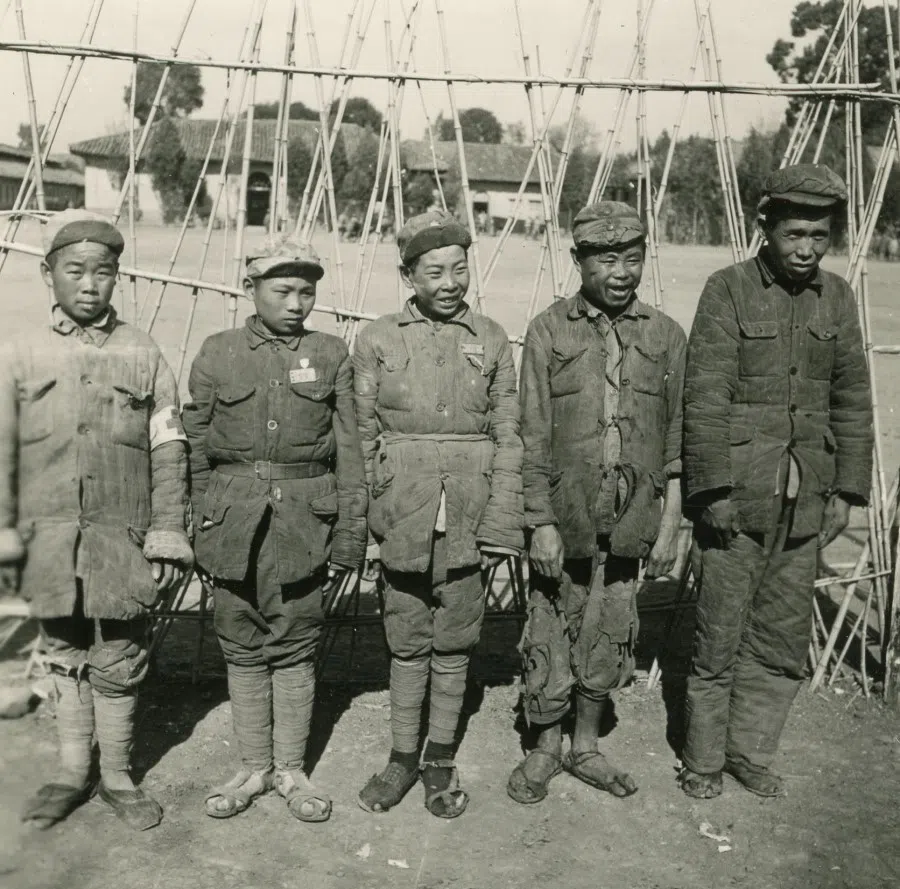
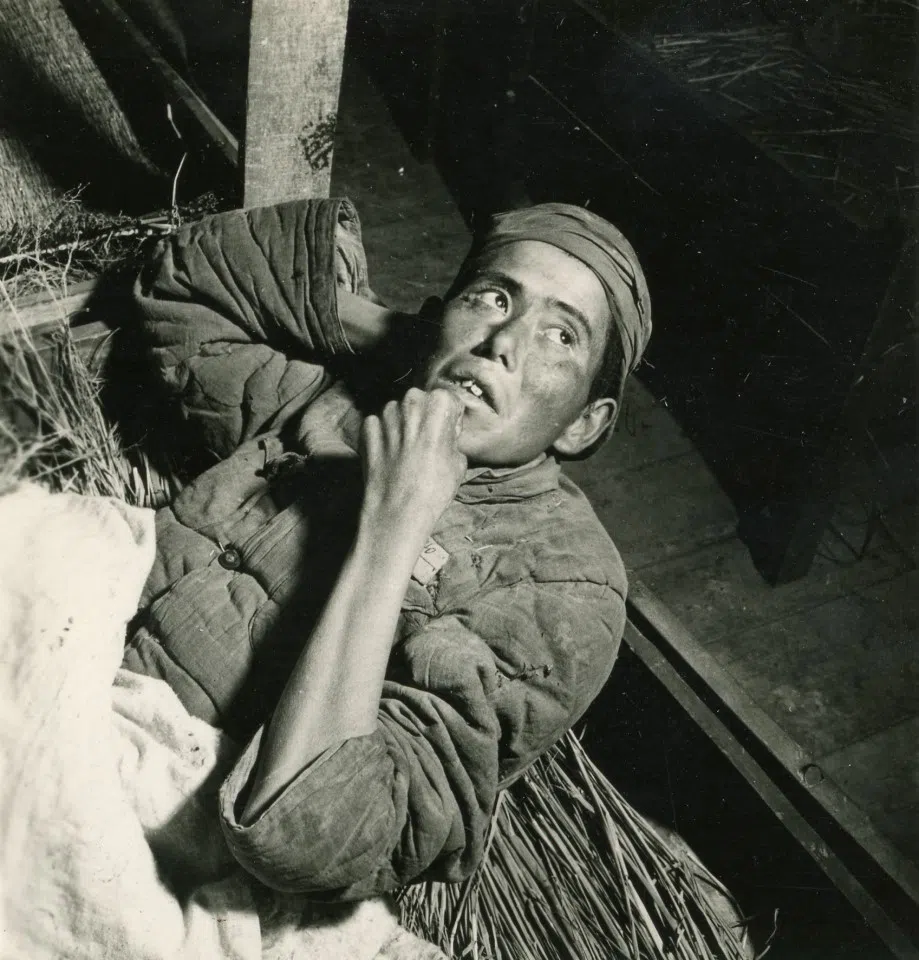
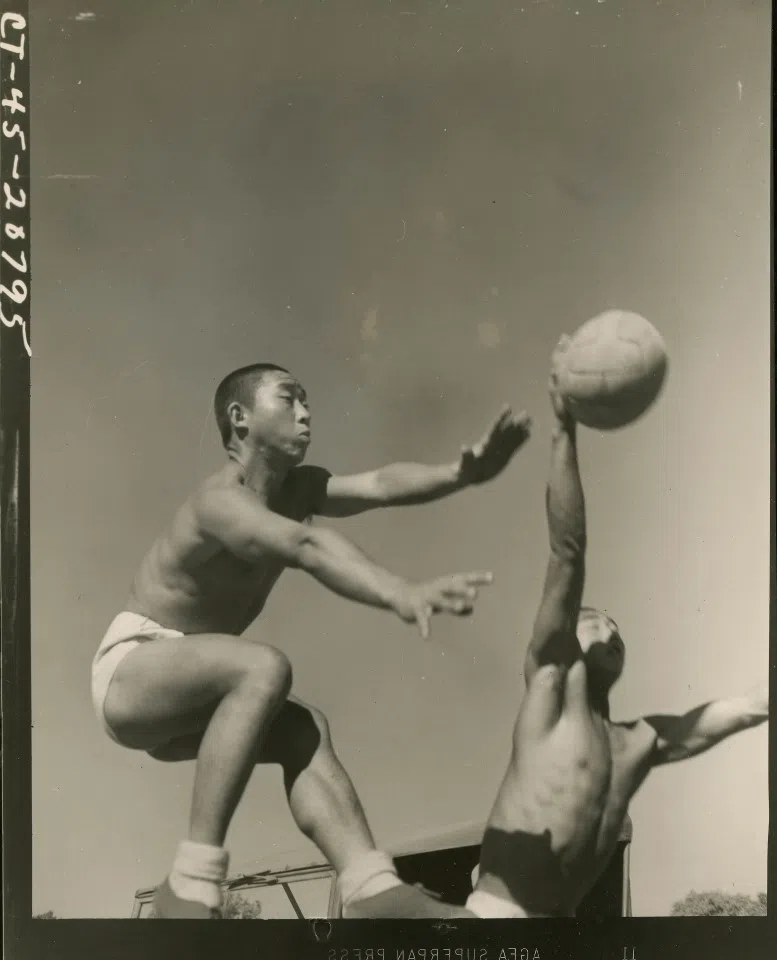
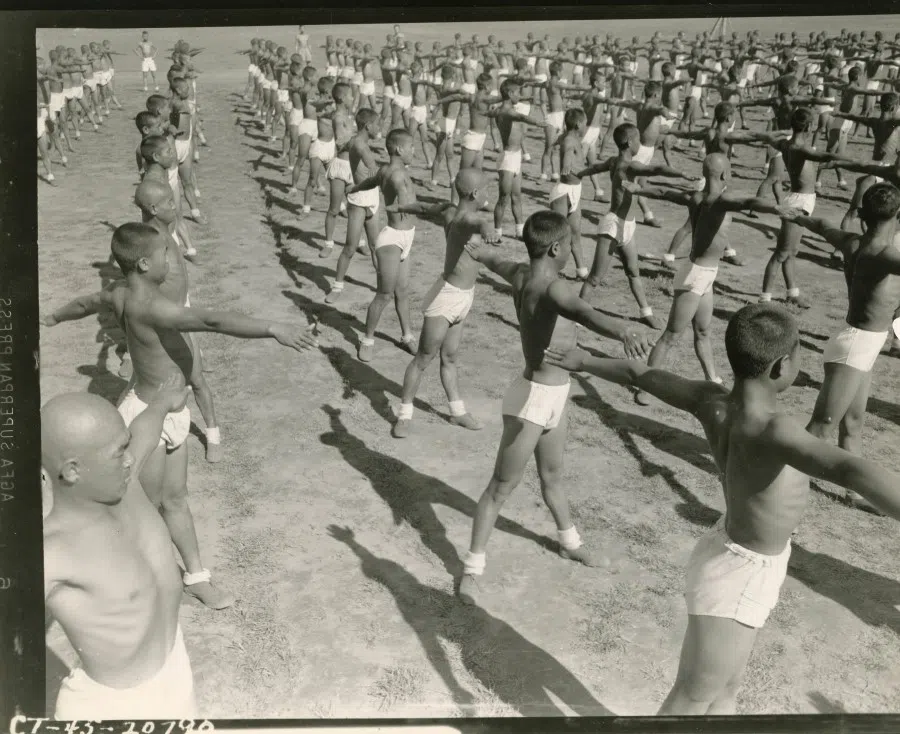
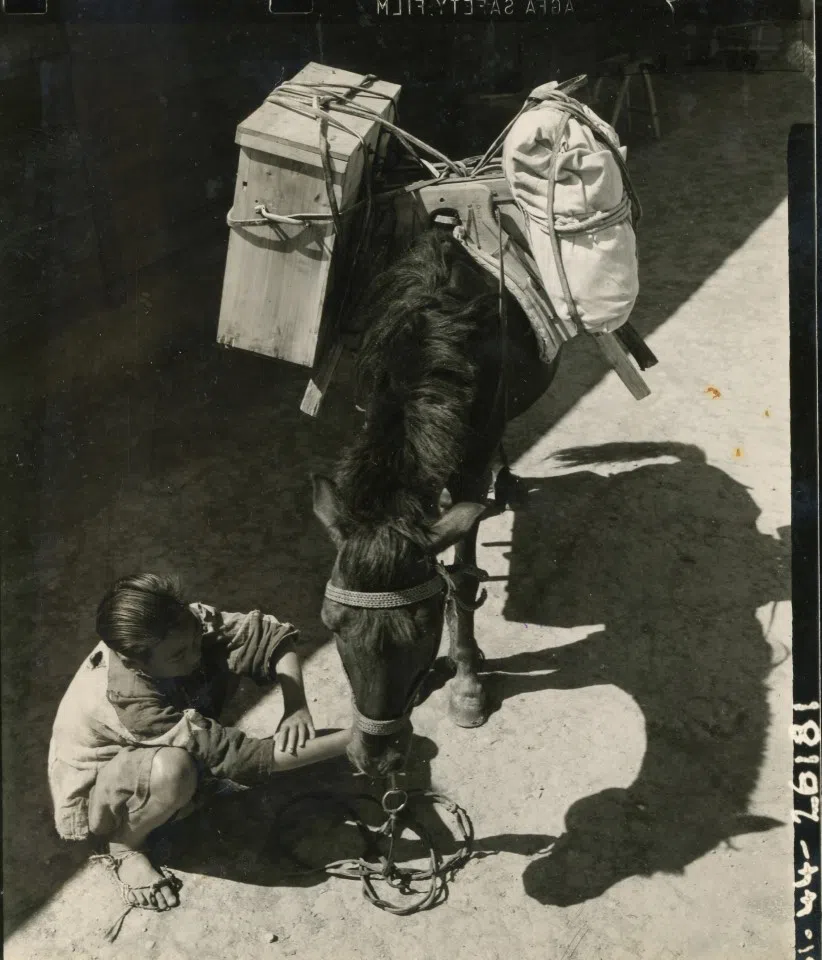
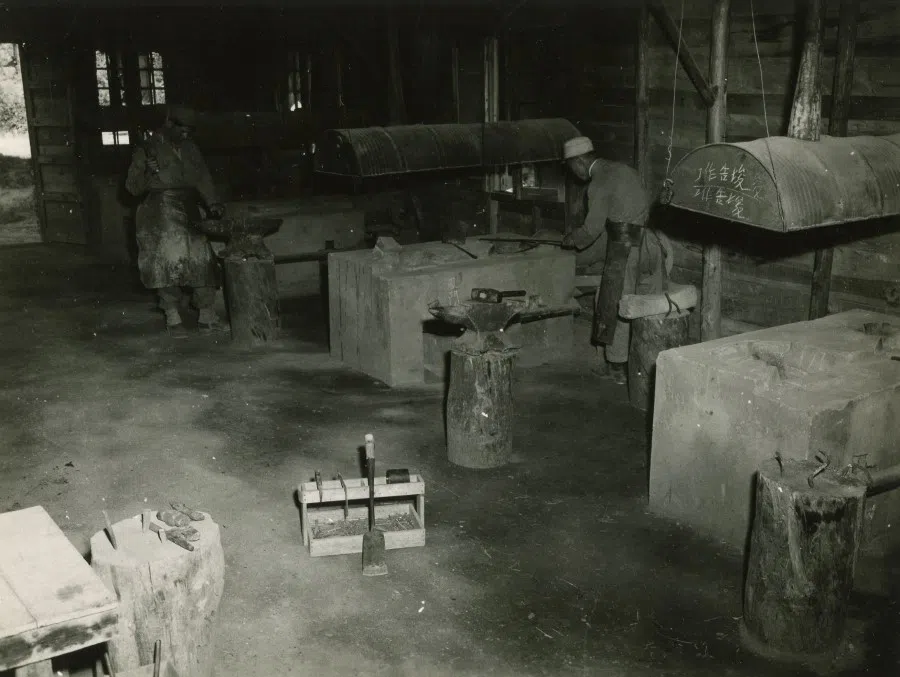
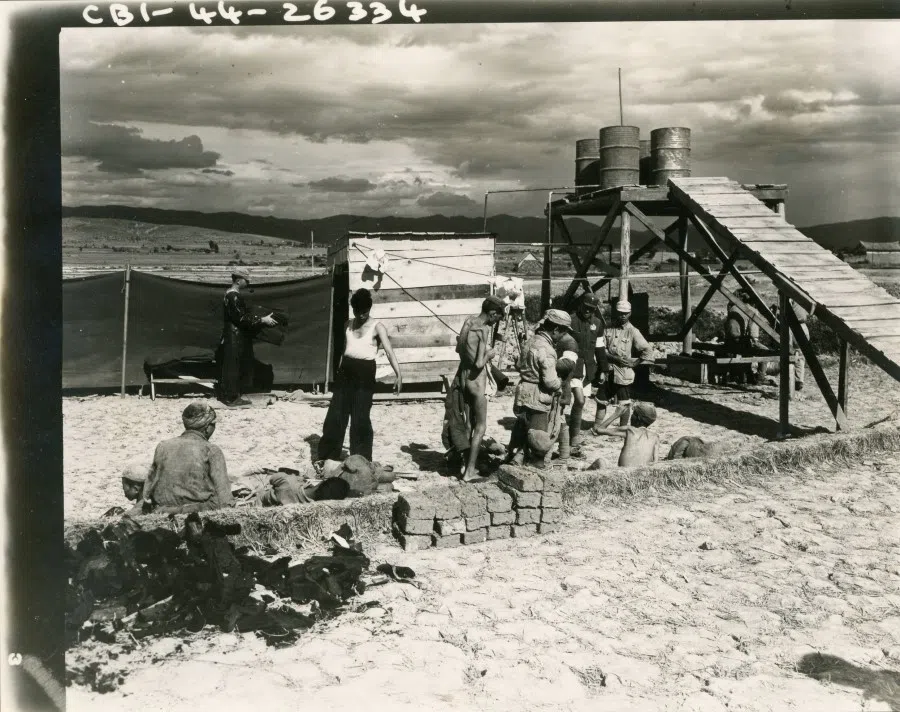
Late that night, I stopped searching out of exhaustion. But just to make myself feel better, I randomly selected some photos to post online.
A few hours later, my phone was bombarded with messages from Yan Huan.
The good news came suddenly, and it came too late. Who would have thought that Ma Tinghui would turn up in the seventh photo I casually posted?
On the edge of the group checking the military horses' health, there was a nondescript silhouette that stirred Yan Huan's heart.
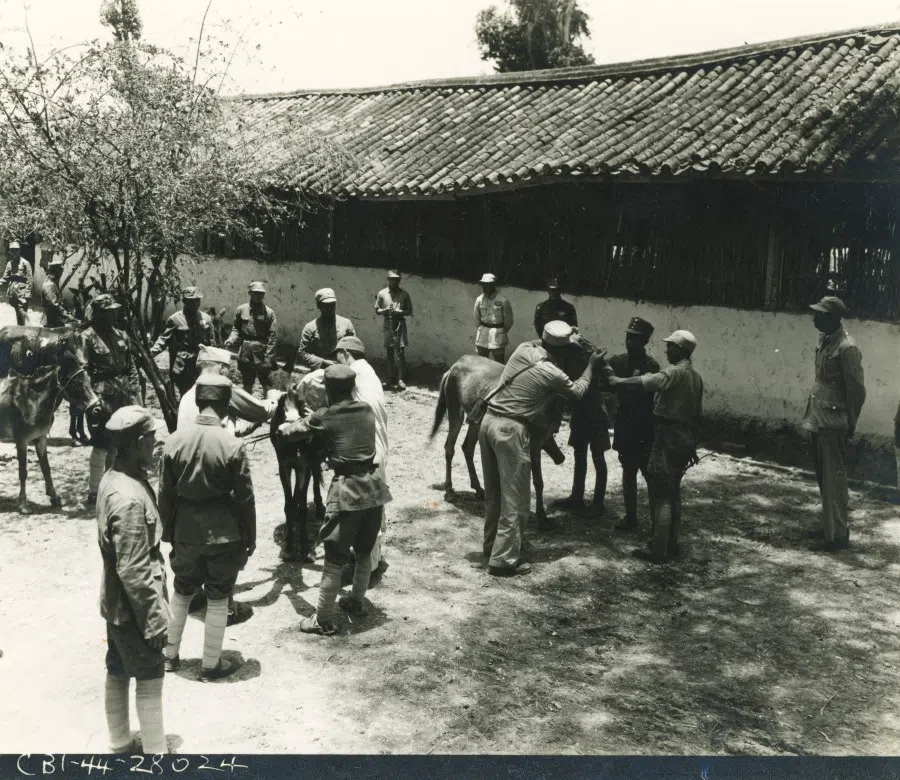
According to Yan Huan's classmates from Hanzhong No. 1 Middle School, the sideways posture with the hands behind the back, and the blurred yet distinctive profile of the unusually tall man, undoubtedly belonged to their former teacher: Ma Tinghui.
Were the speculations of the students from Hanzhong No. 1 Middle School correct? We were afraid that all of this would turn out to be in vain. However, in a spotty, long-distance conversation, Ma Hansheng's tears were all the answer we needed.
And so ended this long search.
Over the years, Ma Tinghui might have reminisced about the old times, dreaming of his experiences on the battlefield while defending the country. But he didn't get stuck in a rut - in the face of later hardships, he learned to smile through everything, keeping those times buried in his heart.
Perhaps Ma Tinghui had some regrets. But now, Yan Huan and the researchers on this topic and I - the owner of the photo - may be able to put aside that regret. Not only does this mark the end of 12 years of arduous searching, but it is also the start of more stories to come.
--------------------------------------------------------------
The following Chinese language video on Ma Tinghui by Zou Dehuai is also available on his YouTube channel.
Related: [Photo story] The fate of Japanese POWs and civilians in China after World War II | A Japanese soldier's photo album: To the hell of war and back | 75th anniversary of the end of WWII: Ashes to glory in the China-Burma-India Theatre | Tan Kah Kee, Aw Boon Haw and the Second Sino-Japanese War [Photo story]





